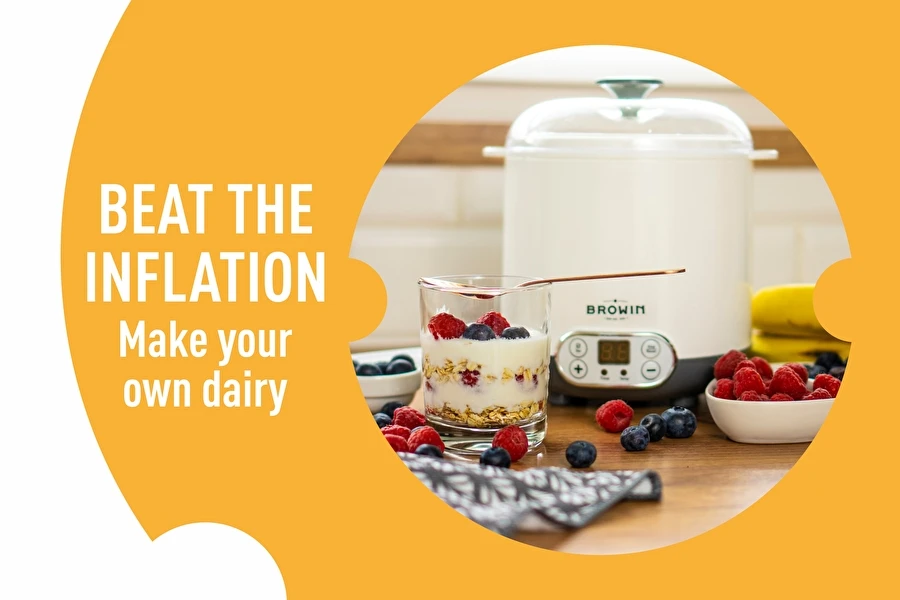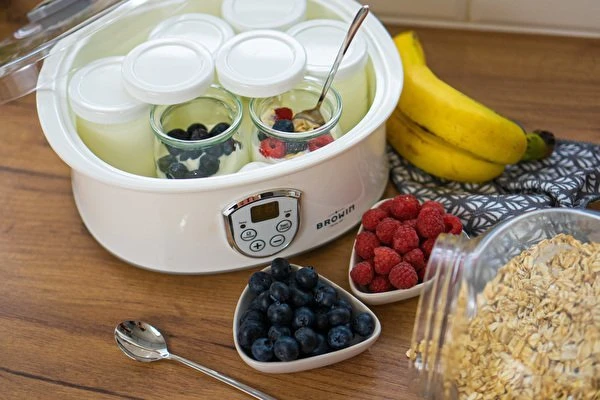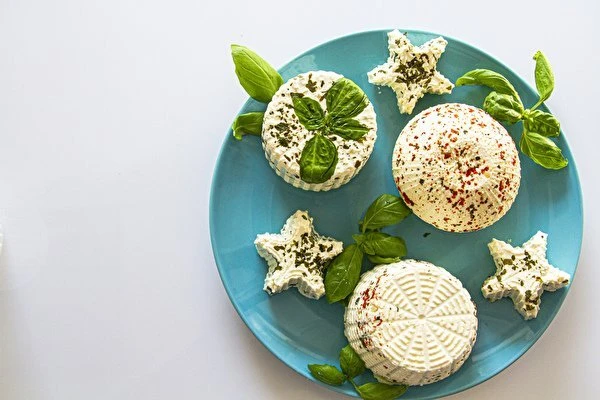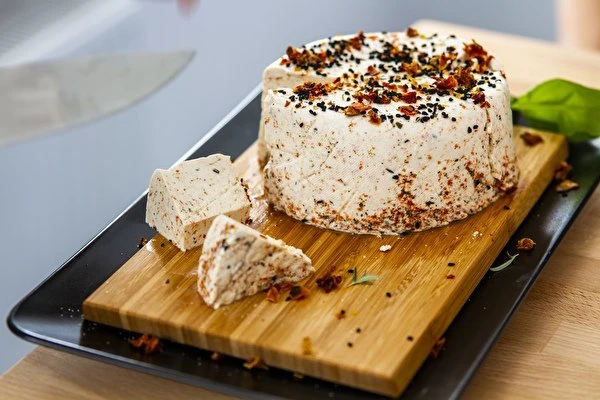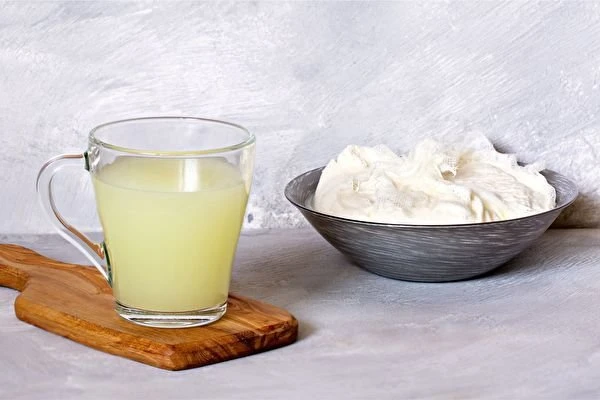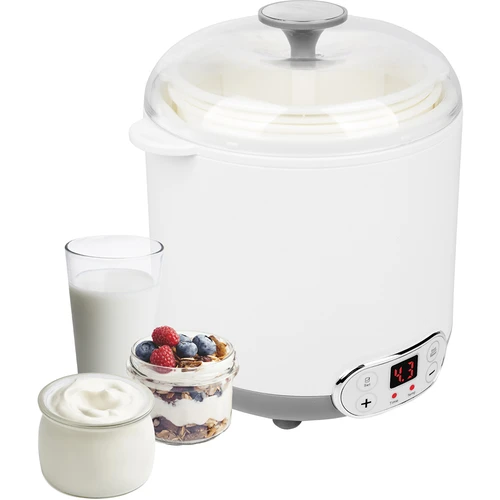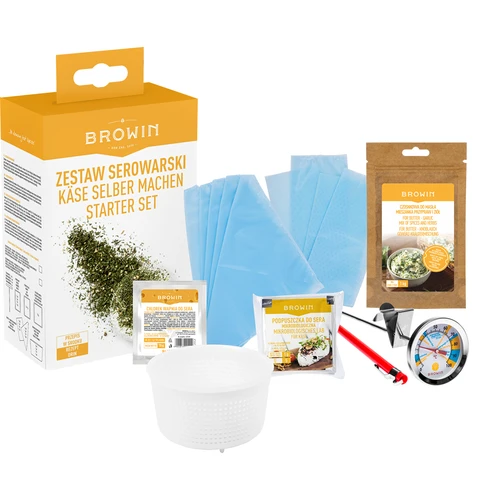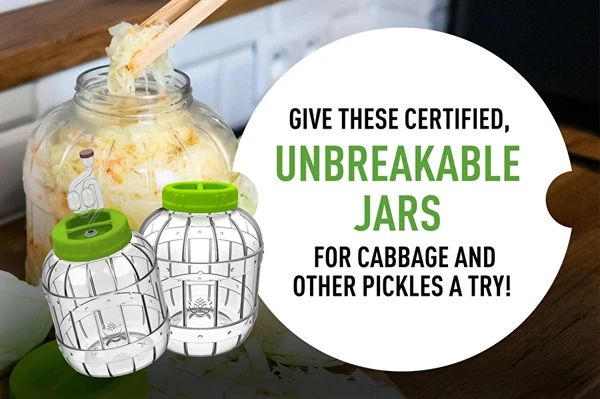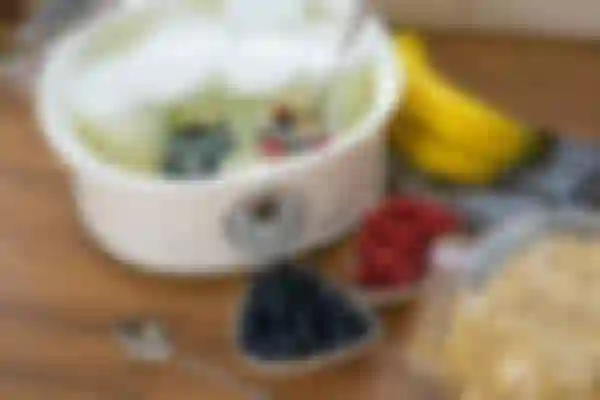
Best natural yoghurt
The simplest dairy products you can make at home are yoghurt with live bacteria cultures. All you need for this is the right starter cultures, good quality milk (cow's, goat's or vegetable) and jars. Using yoghurt maker in the production process, you will ensure reproducible conditions for the growth of yoghurt bacteria, which is especially important especially when making more difficult vegan yoghurt.
You should also look for your favourite flavour and form of homemade yoghurt. When the yoghurt is ready, try adding, for example, a little flaxseed oil, acerola juice or other functional juice, such as sea buckthorn, noni (Indian mulberry) fruit or pomegranate, blended strawberries or other fruits, a little honey and whey (to control the density of the drink). In this way, you can offer your household a healthy, sweet drinkable yoghurt, attractive especially to children, which will not only be cheaper than store products of this type, but will also contain much less unhealthy white sugar.
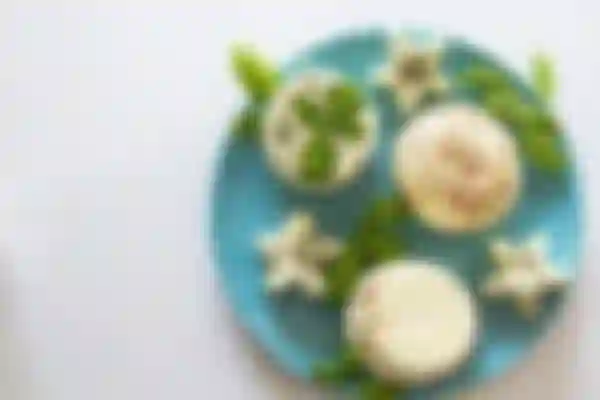

Homemade cheese making
Homemade cheese production does not require a lot of money. The basic products needed to start the adventure of cheese-making - not counting milk, of course - are:
· Calcium chloride (if you use store milk) and cheese rennet (they are necessary for the formation of cheese curds in milk),
· thermometer for measuring milk temperature,
· cheese knife for cutting the curd,
· cheese-making accessories, such as plastic molds and a fine-mesh strainer for shaping cheese.
If you want to try your hand at making yellow, ripened cheeses, you will additionally need the right bacteria, press and cheese cloths so that the ripened cheese can gradually harden and gain "character."
To make sure that the ingredients for making your favourite cheese are perfectly chosen, it's a good idea to use a cheesemaking calculator.
Organic cheeses, which are much more expensive in stores than those without the "bio" label, you can also successfully prepare at home, which is really not difficult. All you have to do is buy organically farmed milk, and add your favourite seeds (including ground), such as flax, hemp seed or poppy seeds, to the cheese mixture. In this way you will produce a cheese with an even higher content of protein and healthy fats.
If you can't consume cow's milk, use goat's milk or vegetable milk to make cheese. Store-bought goat dairy costs a lot more than cow's milk products, but is far less allergenic. Vegan yoghurt are equally expensive, which makes it all the more worthwhile to produce them at home. This is an excellent way for vegans to generate daily savings.
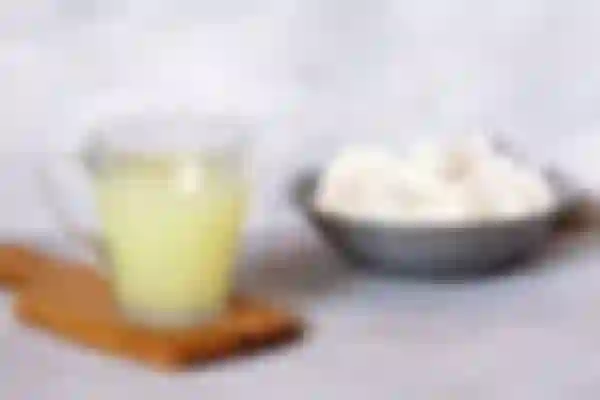
What is whey?
One of the primary by-products that occurs during dairy production is whey. Its main ingredient is water, in addition, it contains protein, B vitamins, fats and lactose. Unfortunately, in large quantities, it becomes dangerous to the environment, because when it is present in wastewater and water, it consumes almost all the oxygen as a result of the biochemical processes taking place, which can change the composition of the soil, disrupt purification and aquatic ecosystems. Therefore, whey is worth using as much as possible in the home kitchen, for beauty care, and occasionally and in small doses even in the garden (among other things, it helps control plant pests).
What to make from whey?
If you're already making homemade cheese, you're probably wondering how best to use whey. Whey protein is extremely beneficial in the diet because it is well digestible and easy to digest (unless someone has lactose intolerance or an allergy to cow's milk protein). It has a beneficial effect on intestinal function. Whey used in the kitchen will allow you to increase the nutritional value of the pies, pancakes and smoothies you prepare. Sour soup on whey is extremely tasty, as well as whey soup. You should also try recipes for gingerbread and other cakes with whey. Whey can also be consumed without additives, especially on hot days it will be great for quenching thirst. It will also be perfect for making homemade bread.
Conclusion
Although making dairy products at home seems complicated, it only requires the preparation of a small technical background. Homemade cheese and yoghurt not only saves money and improves the quality of the dairy products consumed, but also demonstrates a concern for the environment, as it definitely reduces the use of plastic. That's why you should try your hand at processing cow's, goat's or plant milk into your favourite products, tasty and healthy







 Cheese calculator
Cheese calculator



 Winemaking
Winemaking





